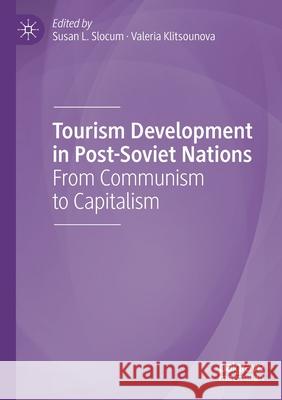Tourism Development in Post-Soviet Nations: From Communism to Capitalism » książka
topmenu
Tourism Development in Post-Soviet Nations: From Communism to Capitalism
ISBN-13: 9783030307172 / Angielski / Miękka / 2021 / 226 str.
Tourism Development in Post-Soviet Nations: From Communism to Capitalism
ISBN-13: 9783030307172 / Angielski / Miękka / 2021 / 226 str.
cena 563,56
(netto: 536,72 VAT: 5%)
Najniższa cena z 30 dni: 539,74
(netto: 536,72 VAT: 5%)
Najniższa cena z 30 dni: 539,74
Termin realizacji zamówienia:
ok. 16-18 dni roboczych.
ok. 16-18 dni roboczych.
Darmowa dostawa!
Kategorie:
Kategorie BISAC:
Wydawca:
Palgrave MacMillan
Język:
Angielski
ISBN-13:
9783030307172
Rok wydania:
2021
Wydanie:
2020
Ilość stron:
226
Waga:
0.30 kg
Wymiary:
21.01 x 14.81 x 1.32
Oprawa:
Miękka
Wolumenów:
01
Dodatkowe informacje:
Wydanie ilustrowane











